How AI is Shaping Military Strategy and Operations
In recent years, the military landscape has undergone a seismic shift, primarily driven by the integration of artificial intelligence (AI). This technology is not just a buzzword; it is a game-changer that is redefining how armed forces operate, strategize, and engage in warfare. Imagine a battlefield where decisions are made in the blink of an eye, where drones and autonomous vehicles navigate hostile environments without direct human control, and where data is transformed into actionable intelligence faster than ever before. This is not science fiction; it is the reality of modern military operations, and AI is at the forefront of this transformation.
The impact of AI on military strategy and operations is profound. First off, AI enhances decision-making processes by analyzing vast amounts of data from multiple sources. This capability allows military leaders to respond to threats more swiftly and effectively than traditional methods would permit. Think about it: in a high-stakes environment where every second counts, having the ability to process information and derive insights in real-time can mean the difference between success and failure. AI acts as a force multiplier, enabling commanders to make informed choices based on accurate, timely data.
Moreover, AI is revolutionizing the concept of situational awareness. By integrating information from various platforms—satellites, reconnaissance missions, and even social media—AI provides a comprehensive view of the battlefield. This level of awareness is crucial for making tactical decisions that can turn the tide of conflict. Imagine a commander receiving a live feed of battlefield conditions, enemy movements, and troop statuses all at once. This is the power of AI in action, offering a strategic advantage that was previously unimaginable.
The use of autonomous systems and robotics is another area where AI is making waves. Unmanned vehicles and drones equipped with AI can conduct missions with minimal human intervention, significantly reducing risks to personnel. These machines can perform surveillance, engage targets, and even carry out logistics tasks—all while being remotely operated or functioning autonomously. This not only enhances operational efficiency but also allows human soldiers to focus on more complex and strategic tasks.
However, as with any groundbreaking technology, the integration of AI into military operations comes with its own set of challenges. Ethical concerns regarding accountability and decision-making in lethal operations are paramount. Who is responsible if an AI system makes a mistake? This question looms large as militaries around the world grapple with the implications of AI in warfare. Additionally, the potential for biases in algorithms raises concerns about the fairness and reliability of AI-driven decisions.
Furthermore, as military operations become increasingly reliant on AI, the associated cybersecurity risks grow. Protecting sensitive military information from cyberattacks is critical. As we move forward, developing robust cybersecurity measures will be essential to safeguard against potential breaches that could compromise national security.
Looking ahead, the future of AI in military strategy is filled with promise. Ongoing advancements in technology are expected to further enhance operational efficiency, effectiveness, and adaptability in an ever-evolving threat landscape. The military will continue to explore innovative applications of AI, paving the way for a new era of warfare that is smarter, faster, and more responsive than ever before.
- How is AI being used in military operations?
AI is used for data analysis, enhancing situational awareness, and operating autonomous systems like drones and unmanned vehicles. - What are the ethical concerns surrounding AI in warfare?
Ethical concerns include accountability for AI decisions, potential biases, and the implications of autonomous lethal operations. - What challenges does AI face in military applications?
Challenges include cybersecurity risks, ethical dilemmas, and the need for reliable and unbiased algorithms. - What is the future of AI in military strategy?
The future promises enhanced operational capabilities, with AI continuing to evolve and integrate into various military functions.
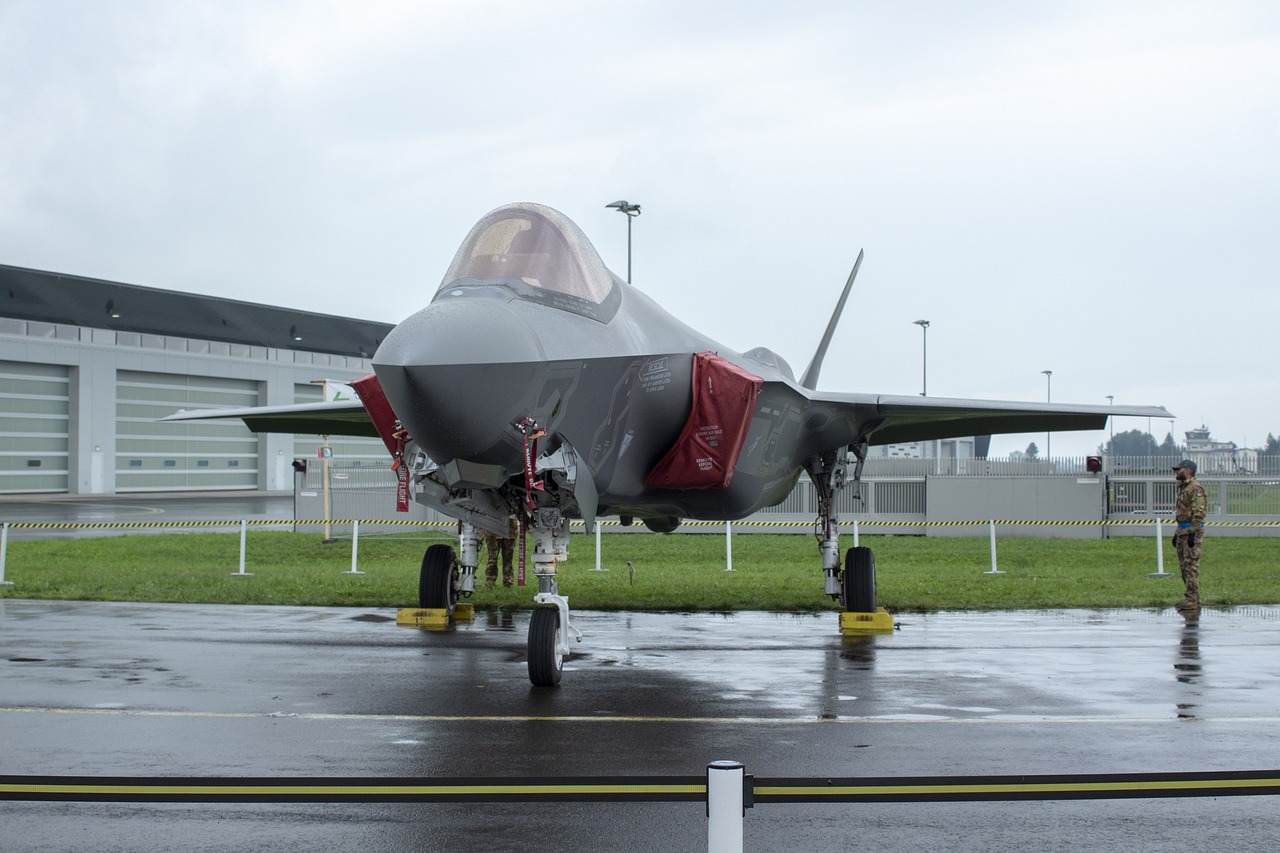
The Role of AI in Modern Warfare
Artificial Intelligence (AI) is not just a buzzword in the tech industry; it's a game-changer in modern warfare. Imagine a battlefield where decisions are made in the blink of an eye, and strategies are adapted in real time based on vast amounts of data. This is the reality that AI is creating, turning traditional military operations on their head. The integration of AI into military strategy is enhancing not only the effectiveness of operations but also the speed at which military leaders can react to emerging threats.
One of the most significant impacts of AI in warfare is its ability to enhance decision-making processes. Military leaders are often faced with overwhelming amounts of data from various sources, including reconnaissance missions, satellite imagery, and intelligence reports. AI systems can sift through this information at lightning speed, identifying patterns and providing actionable insights that human analysts might miss. This capability allows commanders to make informed decisions quickly, which is crucial in high-stakes environments where every second counts.
Moreover, AI improves situational awareness on the battlefield. By integrating data from multiple platforms—such as drones, ground vehicles, and satellites—AI systems provide a comprehensive view of the operational landscape. Imagine being able to visualize the entire battlefield in real time, with all units tracked and potential threats highlighted. This level of awareness enables military personnel to anticipate enemy movements and respond proactively rather than reactively. In essence, AI is like having a supercharged command center that never sleeps.
Furthermore, the rise of autonomous systems is a direct result of AI advancements. Unmanned aerial vehicles (UAVs) and robotic ground units are now capable of executing missions with minimal human intervention. This not only reduces the risk to personnel but also allows for operations in environments that are too dangerous for humans. Picture a drone surveying enemy territory while the pilot remains safely miles away—this is the new face of warfare, where humans and machines collaborate seamlessly.
However, the implementation of AI in military operations is not without its challenges. Ethical considerations surrounding AI in warfare have sparked intense debates. Questions arise about accountability: if an autonomous drone makes a mistake, who is responsible? These are complex issues that military leaders must navigate as they integrate AI into their strategies. Additionally, the potential for biases in AI algorithms poses a risk, as flawed data can lead to incorrect conclusions and decisions.
As we look to the future, it's clear that the role of AI in military strategy will only continue to grow. With rapid advancements in technology, we can expect even more sophisticated AI systems that enhance operational efficiency and adaptability. The battlefield of tomorrow will be a place where AI not only supports human decision-making but also transforms how wars are fought. It's an exciting yet daunting prospect—one that requires careful consideration of the implications of such powerful technology.
- What are the primary benefits of AI in military operations?
AI enhances decision-making speed, improves situational awareness, and enables autonomous systems, ultimately leading to more efficient and effective military operations. - How does AI improve situational awareness?
AI integrates data from various platforms to provide a comprehensive view of the battlefield, allowing commanders to make informed tactical decisions. - What ethical concerns are associated with AI in warfare?
Ethical concerns include accountability for decisions made by autonomous systems and the potential for biases in AI algorithms. - Will AI replace human soldiers in the future?
While AI will enhance military capabilities, it is unlikely to completely replace human soldiers, as human judgment and ethics remain crucial in warfare.

AI-Powered Decision Making
Artificial intelligence is not just a buzzword; it’s a game-changer in the realm of military decision-making. Imagine being a military leader tasked with making split-second decisions that could determine the outcome of an operation. The stakes are incredibly high, and the pressure is immense. This is where AI steps in, acting as a powerful ally that processes vast amounts of data in real-time, providing actionable insights that streamline decision-making. With AI, military leaders can reduce the time it takes to respond to threats, allowing them to act swiftly and decisively on the battlefield.
One of the most remarkable aspects of AI in military operations is its ability to analyze data from a myriad of sources. Think about it: in today’s fast-paced environment, data is generated at an unprecedented rate. From satellite imagery to reconnaissance reports, the amount of information available can be overwhelming. AI technologies excel in sifting through this data, identifying patterns, and extracting critical information that can inform strategic planning. This capability not only enhances situational awareness but also enables military forces to gather intelligence more efficiently and accurately.
To illustrate the impact of AI on decision-making, consider the role of predictive analytics. This branch of AI can forecast potential threats and outcomes based on historical data and real-time inputs. By anticipating what might happen next, military strategists can prepare and adapt their plans proactively. For instance, if AI systems predict an increase in enemy activity in a specific area, commanders can allocate resources accordingly, enhancing overall operational effectiveness. It’s like having a crystal ball that not only shows potential futures but also helps you navigate them.
Moreover, AI enhances real-time situational awareness by integrating data from multiple platforms. Picture a battlefield where information is flowing in from drones, ground troops, and surveillance systems. AI can amalgamate this data into a comprehensive view, allowing commanders to make informed tactical decisions. This seamless integration of information is essential, as it equips military leaders with the context needed to understand the evolving dynamics of the battlefield. In essence, AI transforms chaos into clarity, enabling a more coherent and strategic approach to military operations.
However, the deployment of AI in decision-making is not without its challenges. The algorithms that drive AI systems are only as good as the data they are trained on. If there are biases in the data, these can lead to skewed insights and poor decision-making. Therefore, it is crucial to ensure that the data used to train AI models is representative and free from bias. Additionally, the reliance on AI for decision-making raises questions about accountability. Who is responsible if an AI system makes a mistake? These ethical considerations must be addressed as we continue to integrate AI into military operations.
In conclusion, AI-powered decision-making is revolutionizing how military leaders operate. By enhancing data analysis, enabling predictive analytics, and improving situational awareness, AI provides a significant advantage in modern warfare. However, as we embrace these technologies, it’s imperative to remain vigilant about the ethical implications and potential biases that could arise. The future of military strategy is undoubtedly intertwined with AI, and navigating this landscape will require a thoughtful approach that balances technological advancements with moral responsibility.
- What is AI-powered decision making in the military?
AI-powered decision making refers to the use of artificial intelligence technologies to analyze data and provide actionable insights that assist military leaders in making informed decisions on the battlefield.
- How does AI improve situational awareness?
AI enhances situational awareness by integrating and analyzing data from various sources, providing commanders with a comprehensive view of the battlefield, which is critical for tactical decision-making.
- What are the ethical concerns associated with AI in military operations?
Ethical concerns include accountability for AI-driven decisions, potential biases in AI algorithms, and the moral implications of using AI in lethal operations.
- Can AI predict future threats?
Yes, AI can utilize predictive analytics to forecast potential threats based on historical data and real-time inputs, allowing military strategists to prepare and adapt their plans.
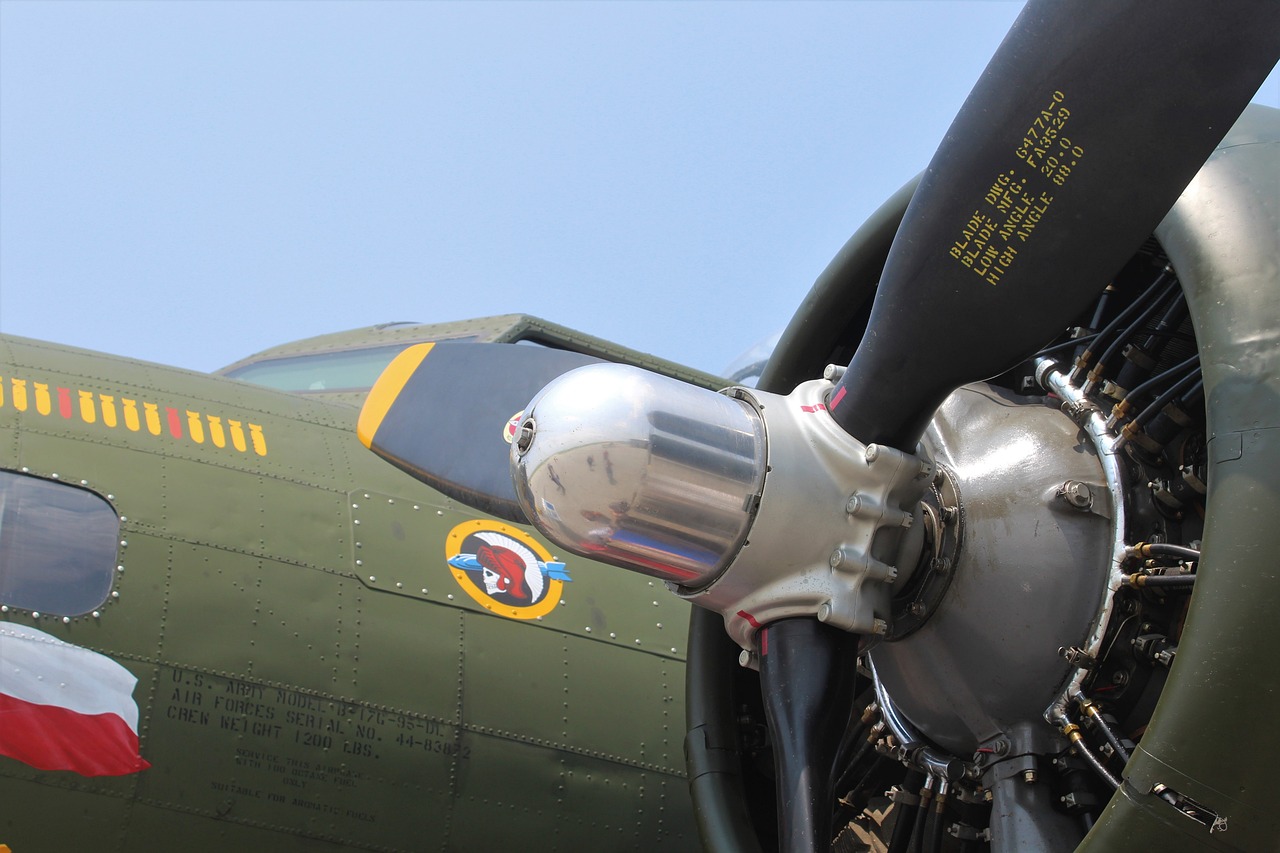
Data Analysis and Intelligence Gathering
In the realm of modern warfare, data analysis and intelligence gathering have become paramount for military success. With the sheer volume of information available from various sources such as satellites, reconnaissance missions, and even social media, the ability to process and analyze this data efficiently is a game changer. Imagine trying to find a needle in a haystack, but the haystack is constantly growing and changing. This is where artificial intelligence (AI) steps in, acting as the skilled searcher who can quickly sift through the chaos to find that vital piece of information.
AI technologies utilize advanced algorithms to analyze vast datasets, which enhances the military's ability to gather intelligence more efficiently and accurately. For instance, AI can process images captured by drones and satellites, identifying patterns and anomalies that human analysts might miss. This capability is crucial for strategic planning, as it allows military leaders to have a clearer picture of potential threats and operational landscapes. The integration of AI in data analysis not only speeds up the process but also ensures that the intelligence gathered is more reliable.
Furthermore, AI's ability to perform predictive analytics plays a significant role in intelligence gathering. By analyzing historical data and current trends, AI can forecast potential threats and their outcomes. This predictive capability enables military strategists to prepare for various scenarios, adapting their plans proactively rather than reactively. For example, if AI detects unusual troop movements or communications patterns, it can alert commanders to potential conflicts before they escalate, allowing for more effective responses.
Real-time data integration is another critical aspect of AI-powered intelligence. By pulling data from multiple platforms—such as ground sensors, aerial surveillance, and cyber intelligence—AI provides commanders with a comprehensive view of the battlefield. This holistic perspective is essential for making informed tactical decisions. Imagine being a chess player who can see all possible moves of your opponent in real-time; that’s the advantage AI offers military leaders.
However, the reliance on AI for data analysis and intelligence gathering does not come without challenges. Issues such as algorithmic bias can lead to misinterpretations of data, resulting in flawed intelligence. It's vital for military organizations to continually refine their AI systems and ensure that they are trained on diverse datasets to minimize these biases. Additionally, maintaining the security of sensitive data is crucial, as cyber threats can compromise the integrity of intelligence operations.
In conclusion, the integration of AI in data analysis and intelligence gathering represents a significant leap forward in military capabilities. By enhancing the speed and accuracy of intelligence operations, AI not only improves decision-making but also increases the overall effectiveness of military strategies. As we continue to explore the potential of AI, the future of warfare will undoubtedly be shaped by these advanced technologies.
- What is the role of AI in military intelligence? AI enhances data analysis and intelligence gathering by processing large amounts of data quickly and accurately, providing actionable insights for military leaders.
- How does predictive analytics work in military operations? Predictive analytics uses historical data to forecast potential threats, allowing military strategists to prepare and adapt their plans proactively.
- What are the challenges associated with AI in military intelligence? Challenges include ethical considerations, algorithmic bias, and cybersecurity risks that need to be addressed to ensure effective and secure operations.

Predictive Analytics in Defense
Predictive analytics in defense is like having a crystal ball that helps military strategists see into the future. By leveraging artificial intelligence and vast amounts of data, military forces can anticipate potential threats and outcomes with remarkable accuracy. Imagine being able to predict the movements of adversaries or foresee logistical challenges before they arise. This capability not only enhances operational readiness but also allows for more informed decision-making.
At its core, predictive analytics involves using historical data, statistical algorithms, and machine learning techniques to identify patterns and predict future events. For the military, this means analyzing data from various sources, such as satellite imagery, intelligence reports, and even social media. By processing this information, AI can highlight trends that may indicate an impending threat, enabling commanders to act swiftly and strategically.
One of the most significant advantages of predictive analytics is its ability to improve resource allocation. For instance, if data suggests a high likelihood of conflict in a specific region, military planners can allocate troops, equipment, and supplies accordingly. This proactive approach not only saves time and resources but also enhances the overall effectiveness of military operations.
Moreover, predictive analytics can play a crucial role in risk management. By forecasting potential challenges, military leaders can develop contingency plans that mitigate risks. For example, if predictive models indicate a high chance of cyberattacks during a particular operation, cybersecurity measures can be intensified in advance, protecting sensitive information and maintaining operational integrity.
However, like any powerful tool, predictive analytics comes with its own set of challenges. The accuracy of predictions is heavily reliant on the quality of the data used. If the data is biased or incomplete, the predictions may lead to misinformed decisions. Therefore, it is essential for military organizations to implement robust data collection and analysis processes to ensure the reliability of their predictive models.
In conclusion, predictive analytics is transforming defense strategies by providing military leaders with the foresight they need to navigate complex and evolving threats. As technology continues to advance, the potential applications of predictive analytics in defense are likely to expand, paving the way for a more proactive and responsive military.
- What is predictive analytics in defense?
Predictive analytics in defense involves using AI and data analysis to forecast potential threats and outcomes, enhancing military decision-making and operational readiness. - How does predictive analytics improve military operations?
By anticipating challenges and resource needs, predictive analytics enables better planning and allocation of military assets, ultimately leading to more effective operations. - What are the challenges associated with predictive analytics?
The main challenges include ensuring data quality, addressing potential biases, and implementing secure systems to protect sensitive information. - Can predictive analytics prevent military conflicts?
While predictive analytics cannot prevent conflicts outright, it can provide valuable insights that help military leaders make informed decisions to mitigate risks and enhance preparedness.
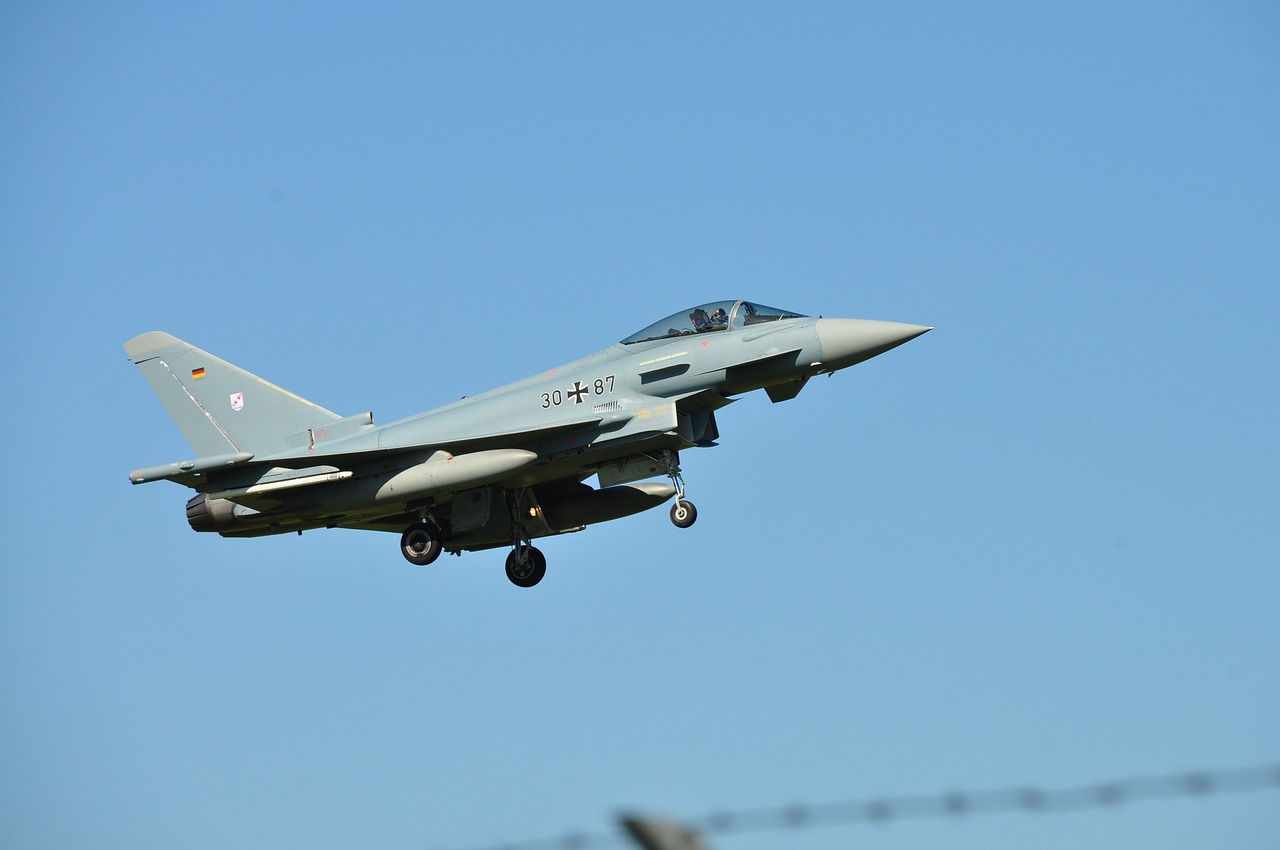
Real-time Situational Awareness
In the chaotic realm of modern warfare, is akin to having a bird’s eye view of the battlefield. Imagine being in a high-stakes game of chess, where every move counts, and your opponent is unpredictable. This is where AI steps in, transforming the way military commanders perceive and react to their environment. By integrating data from various sources—such as drones, satellites, and ground sensors—AI provides a comprehensive picture that is crucial for informed decision-making.
One of the most significant advantages of AI in enhancing situational awareness is its ability to process and analyze vast amounts of data almost instantaneously. Traditional methods of gathering intelligence can be slow and cumbersome, often leaving commanders in the dark during critical moments. However, with AI, data from multiple platforms can be fused together seamlessly, allowing military leaders to gain insights that were previously unimaginable. This integration not only speeds up the decision-making process but also increases the accuracy of the information at hand, ultimately leading to more effective military operations.
Consider the following table that illustrates how various AI technologies contribute to real-time situational awareness:
| AI Technology | Application | Benefit |
|---|---|---|
| Drones | Surveillance and reconnaissance | Provides live feeds and high-resolution imagery |
| Data Analytics | Predictive modeling | Forecasts potential threats and troop movements |
| Sensor Networks | Environmental monitoring | Tracks changes in the battlefield in real-time |
| Communication Systems | Information sharing | Ensures all units have access to the same data |
Moreover, AI enhances situational awareness by utilizing machine learning algorithms that continually improve with each piece of data processed. This means that the more the system is used, the better it becomes at recognizing patterns and predicting outcomes. For instance, if a particular area has shown increased enemy activity, the AI can alert commanders to this trend, allowing them to allocate resources more effectively. This proactive approach can make all the difference in a combat scenario, where every second counts.
However, it’s important to note that while AI significantly boosts situational awareness, it is not without its challenges. The reliance on technology can sometimes lead to overconfidence, potentially causing commanders to overlook critical human elements of warfare, such as morale and psychological factors. Therefore, it is essential to strike a balance between leveraging AI capabilities and maintaining human insight and intuition.
In conclusion, real-time situational awareness powered by AI is reshaping military strategy, enabling commanders to make quicker and more informed decisions. This technological evolution not only enhances operational efficiency but also offers a strategic advantage in an increasingly complex battlefield. As we look to the future, the integration of AI in military operations promises to redefine how wars are fought, making it imperative for military leaders to embrace these advancements while remaining vigilant about their limitations.
- What is real-time situational awareness in military operations?
Real-time situational awareness refers to the ability to perceive and understand the current state of the battlefield using various data sources, allowing commanders to make informed decisions quickly. - How does AI improve situational awareness?
AI processes vast amounts of data from multiple platforms, providing a comprehensive view of the battlefield and enabling faster, more accurate decision-making. - What are some challenges of relying on AI for situational awareness?
Challenges include potential overconfidence in technology, ethical concerns, and the need for human intuition in decision-making processes.
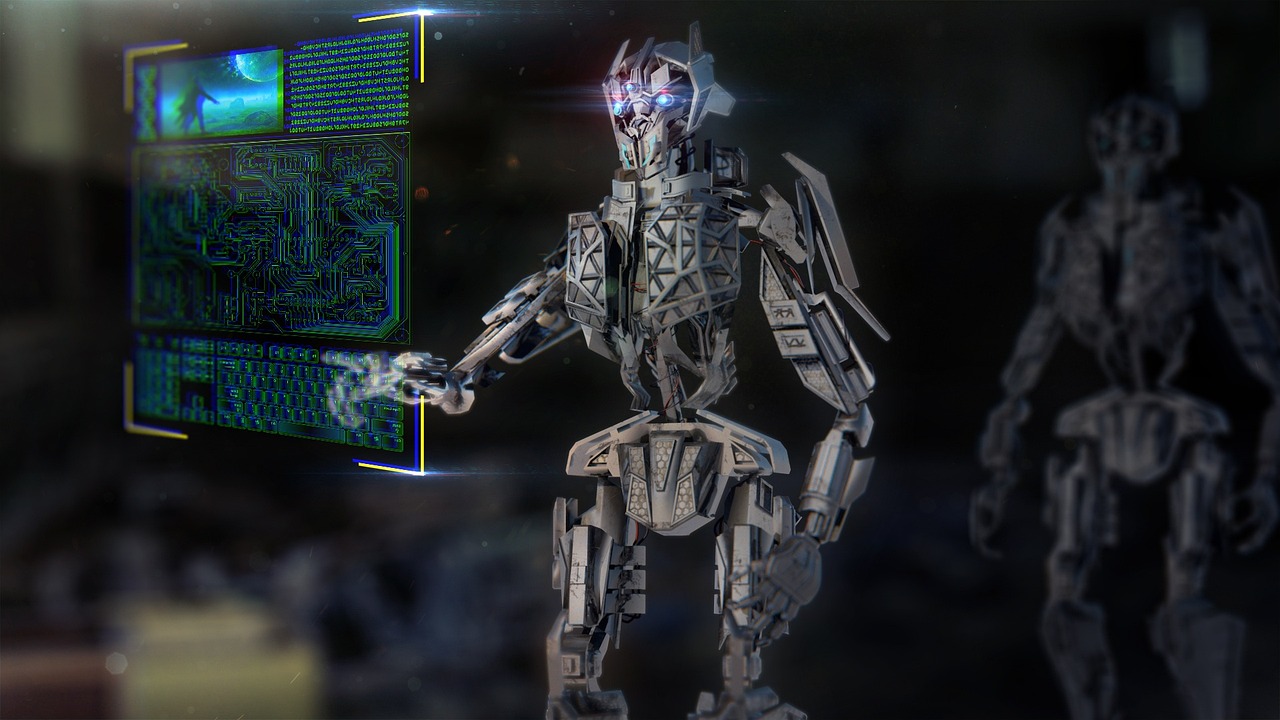
Autonomous Systems and Robotics
This article explores the transformative impact of artificial intelligence on military strategy and operations, highlighting various applications, challenges, and future implications for defense systems and tactics.
AI is revolutionizing modern warfare by enhancing decision-making processes, improving situational awareness, and enabling autonomous systems, which ultimately lead to more effective military operations and strategies.
Artificial intelligence assists military leaders by processing vast amounts of data to provide actionable insights, thereby streamlining decision-making and reducing the time required to respond to threats on the battlefield.
AI technologies excel in analyzing data from various sources, including satellites and reconnaissance, enabling military forces to gather intelligence more efficiently and accurately, which is crucial for strategic planning.
Predictive analytics powered by AI can forecast potential threats and outcomes, allowing military strategists to prepare and adapt their plans proactively, enhancing overall operational effectiveness.
AI enhances real-time situational awareness by integrating data from multiple platforms, providing commanders with a comprehensive view of the battlefield, which is essential for making informed tactical decisions.
The integration of AI in autonomous systems and robotics is transforming military capabilities in unprecedented ways. Imagine drones that can operate without human oversight, making decisions in real-time based on their programming and the data they collect. These unmanned systems can conduct reconnaissance, deliver supplies, or even engage in combat, all while minimizing the risk to human soldiers. This shift not only changes how missions are executed but also alters the strategic landscape of warfare itself.
One of the most significant advantages of autonomous systems is their ability to operate in environments that are too dangerous for humans. For instance, consider a scenario where a military unit must navigate through a hostile territory filled with landmines. An autonomous vehicle equipped with AI can traverse this area, mapping out safe paths while avoiding threats. This capability not only saves lives but also enhances the effectiveness of military operations.
However, the deployment of these technologies comes with its own set of challenges. The reliance on AI in autonomous systems raises questions about accountability. If a drone makes a mistake and causes unintended harm, who is responsible? Is it the programmer, the military leader, or the machine itself? These ethical dilemmas must be addressed as we move forward.
Moreover, the integration of AI in robotics can lead to a new arms race, as nations strive to outdo each other in developing more advanced autonomous technologies. This could potentially destabilize global security, making it imperative for international regulations to evolve alongside these advancements.
In terms of operational efficiency, AI-powered robotics can analyze mission data in real-time, adjusting strategies on the fly. For example, if a drone identifies an unexpected threat, it can relay that information back to command centers, allowing for immediate tactical adjustments. This level of responsiveness is crucial in modern warfare, where the battlefield can change in an instant.
As we look to the future, the possibilities for AI in autonomous systems are vast. From enhancing surveillance capabilities to executing complex maneuvers in combat, these technologies will continue to shape military strategies and operations. The question remains: how will we balance the benefits of these advancements with the ethical and security challenges they pose?
Despite its benefits, the implementation of AI in military operations presents challenges, including ethical concerns, potential biases in algorithms, and the need for robust cybersecurity measures to protect sensitive data.
The use of AI in warfare raises ethical questions regarding accountability, decision-making in lethal operations, and the potential for unintended consequences, necessitating a careful examination of moral implications.
As military operations increasingly rely on AI, the associated cybersecurity risks grow, making it critical to develop secure systems that can withstand cyberattacks and protect sensitive military information.
Looking forward, the role of AI in military strategy is expected to expand, with ongoing advancements in technology promising to further enhance operational efficiency, effectiveness, and adaptability in an ever-evolving threat landscape.
- What are autonomous systems in the military?
Autonomous systems are unmanned vehicles and drones that can operate without human intervention, utilizing AI to perform tasks such as surveillance, reconnaissance, and even combat. - How does AI improve decision-making in military operations?
AI processes vast amounts of data quickly, providing actionable insights that help military leaders make informed decisions faster than traditional methods. - What are the ethical concerns surrounding AI in warfare?
Ethical concerns include accountability for actions taken by autonomous systems, the potential for unintended consequences, and the moral implications of using AI in lethal operations. - What cybersecurity risks are associated with AI in the military?
As military operations increasingly rely on AI, the risk of cyberattacks targeting these systems grows, necessitating robust cybersecurity measures to protect sensitive information.

Challenges of Implementing AI in Military
While the integration of artificial intelligence (AI) into military operations offers numerous advantages, it also presents a series of significant challenges that need to be addressed. One of the foremost concerns is the ethical implications of using AI in warfare. As we increasingly rely on machines to make decisions that can lead to life or death, questions arise regarding accountability. Who is responsible if an AI system makes a mistake? Is it the programmer, the military leader, or the machine itself? These are not just theoretical questions; they are pressing issues that military strategists must grapple with as they integrate AI into their operations.
Furthermore, there are potential biases inherent in AI algorithms. These biases can stem from the data used to train the AI systems, which may reflect historical prejudices or inaccuracies. If military AI systems are trained on flawed data, they may produce skewed results that can lead to poor decision-making on the battlefield. For instance, if an AI system is biased towards certain demographics, it could misinterpret threats or misallocate resources, ultimately compromising mission success.
Another critical challenge is cybersecurity. As military operations become increasingly reliant on AI technologies, the potential for cyberattacks grows exponentially. Hackers could target AI systems to manipulate their operations or steal sensitive information. This risk necessitates the development of robust cybersecurity measures to protect military data and ensure the integrity of AI systems. Military organizations must invest in advanced security protocols and continuously update their defenses to counter evolving cyber threats.
In addition to ethical and cybersecurity challenges, there is the issue of interoperability. Modern military operations often involve collaboration between different branches of the armed forces and allied nations. Ensuring that AI systems can effectively communicate and work together across various platforms and technologies is crucial for operational success. This requires standardized protocols and a commitment to shared technological advancements.
Finally, the pace of technological advancement in AI poses a challenge in itself. The rapid evolution of AI capabilities means that military strategies and training programs must constantly adapt. This can be a daunting task, requiring ongoing education and development for military personnel to stay current with the latest AI technologies and their applications.
In summary, while the potential benefits of AI in military operations are significant, the challenges are equally formidable. Addressing ethical concerns, ensuring data integrity, enhancing cybersecurity, achieving interoperability, and keeping pace with technological advancements are all vital for the successful implementation of AI in military strategy.
- What are the main ethical concerns regarding AI in the military?
Ethical concerns primarily revolve around accountability for decisions made by AI, potential biases in algorithms, and the implications of autonomous lethal operations. - How does cybersecurity affect military AI systems?
Cybersecurity is crucial as AI systems can be targeted by cyberattacks, which can lead to data breaches or manipulation of military operations. - What is meant by interoperability in military AI?
Interoperability refers to the ability of different AI systems and technologies to work together seamlessly across various military branches and allied forces. - How can biases in AI algorithms impact military operations?
Biases can lead to inaccurate threat assessments and resource misallocation, which may compromise mission effectiveness and safety.

Ethical Considerations in AI Warfare
The integration of artificial intelligence into military operations has sparked a heated debate around ethical considerations. As we stand on the brink of a new era in warfare, the implications of using AI for lethal decision-making raise profound moral questions. Who is accountable when an AI system makes a mistake? Can we trust algorithms to make life-and-death decisions? These questions are not just academic; they have real-world consequences that could shape the future of military engagement.
One of the primary concerns is the accountability of AI systems. In traditional warfare, the chain of command is clear, and responsibility can be assigned to human operators. However, as we delegate more decision-making to machines, the lines blur. If an autonomous drone mistakenly targets civilians, who is to blame? The programmer? The military leader who deployed it? Or the machine itself? This ambiguity complicates ethical and legal frameworks, making it challenging to hold anyone responsible for potential war crimes.
Moreover, there is the risk of bias in AI algorithms. Machine learning systems learn from data, and if that data is flawed or biased, the outcomes can be disastrous. For instance, if an AI system is trained on historical data that reflects prejudiced decision-making, it may perpetuate these biases in real-time combat scenarios. This raises significant ethical concerns about fairness and justice in military operations, as biased algorithms could disproportionately target certain groups, exacerbating existing inequalities.
Another critical ethical issue is the potential for unintended consequences. AI systems operate on complex algorithms that can sometimes produce unexpected results. Imagine a situation where an AI misinterprets a civilian gathering as a military threat due to faulty data analysis. The consequences could be catastrophic, leading to loss of innocent lives and further escalating conflict. This unpredictability necessitates a thorough examination of how AI systems are designed and deployed in warfare.
To address these ethical dilemmas, military organizations must implement strict guidelines and oversight mechanisms. This could include:
- Establishing clear accountability frameworks for AI decision-making.
- Conducting regular audits of AI systems to identify and mitigate biases.
- Incorporating human oversight in critical decisions, ensuring that a human operator can intervene when necessary.
- Engaging in transparent discussions about the ethical implications of AI in warfare with stakeholders, including policymakers, ethicists, and the public.
As we continue to explore the potential of AI in military operations, it’s crucial to balance technological advancement with ethical responsibility. The military must tread carefully, ensuring that the benefits of AI do not come at the expense of moral integrity. By fostering a culture of ethical awareness and accountability, we can navigate the complex landscape of AI warfare while minimizing the risks associated with its implementation.
Q1: What are the main ethical concerns regarding AI in warfare?
A1: The primary ethical concerns include accountability for decisions made by AI, the potential for biased algorithms, and the risk of unintended consequences that could lead to civilian casualties.
Q2: How can military organizations ensure ethical AI use?
A2: Military organizations can ensure ethical AI use by implementing strict guidelines, conducting regular audits for biases, incorporating human oversight in decision-making, and engaging in transparent discussions about the implications of AI in warfare.
Q3: What happens if an AI system makes a mistake in combat?
A3: If an AI system makes a mistake, accountability becomes complex. It could involve the programmer, the military leader, or raise questions about the machine's autonomous capabilities. This ambiguity highlights the need for clear accountability frameworks.
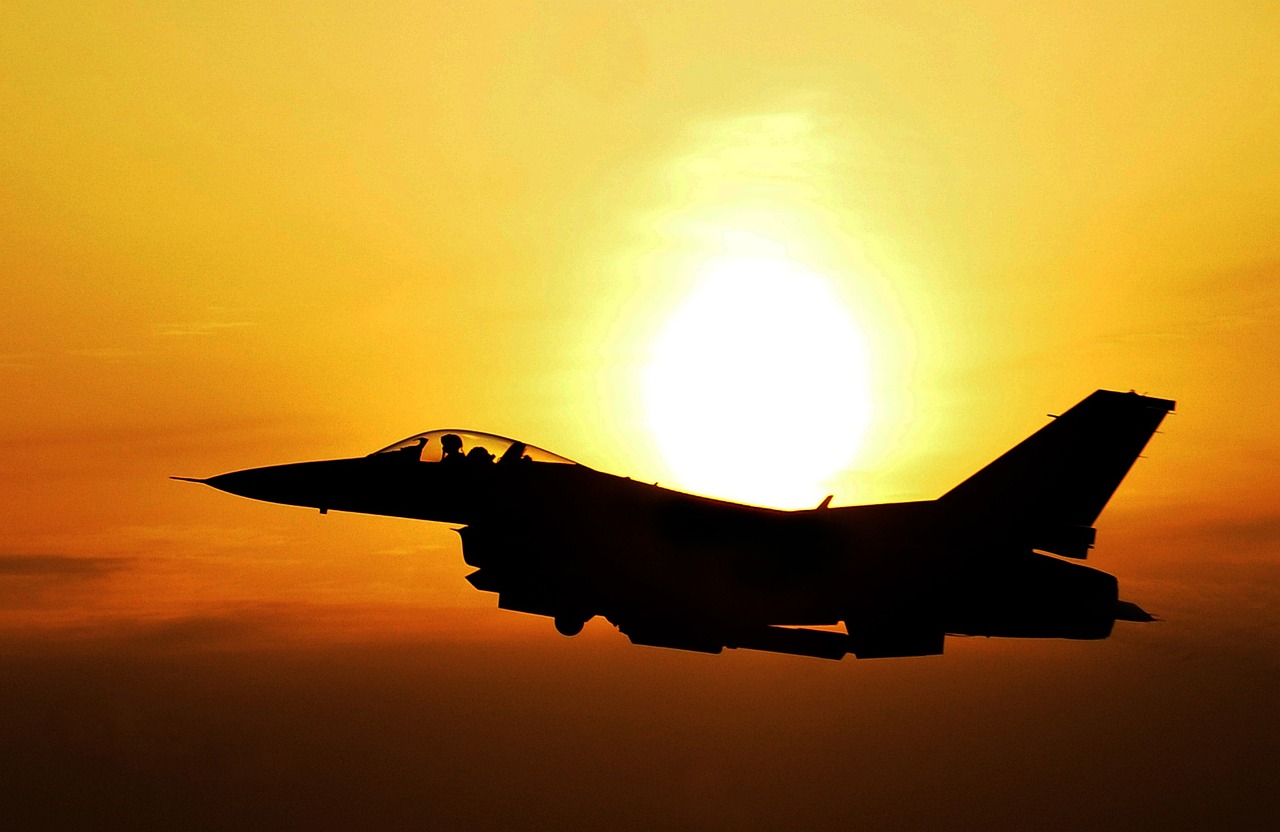
Cybersecurity Risks
The integration of artificial intelligence (AI) in military operations brings forth a myriad of advantages, but it also introduces significant that cannot be overlooked. As military forces increasingly rely on AI systems for critical decision-making and operational efficiency, the potential for cyber threats escalates dramatically. Just imagine a scenario where an enemy could manipulate AI algorithms to create chaos in military strategies; the implications are both alarming and profound.
One of the primary concerns is that AI systems can be vulnerable to hacking and other cyberattacks. These attacks could compromise sensitive military information, disrupt communication channels, or even hijack autonomous systems, leading to catastrophic outcomes. For instance, if an enemy were to gain control of a drone fleet, the consequences could be disastrous, not just for the military but also for civilian populations.
Moreover, the complexity of AI algorithms makes them susceptible to adversarial attacks. In such attacks, malicious actors can subtly manipulate the input data to deceive AI systems into making incorrect predictions or decisions. This is akin to a magician performing sleight of hand; the audience (or in this case, the AI) is misled by seemingly innocuous data, which can have dire repercussions on the battlefield.
To illustrate the potential risks, consider the following table that outlines various cybersecurity threats associated with AI in military operations:
| Cybersecurity Threat | Description | Potential Impact |
|---|---|---|
| Data Manipulation | Altering input data to mislead AI systems. | Incorrect decision-making and operational failures. |
| System Hijacking | Gaining unauthorized access to AI-controlled systems. | Loss of control over autonomous vehicles or drones. |
| Algorithm Exploitation | Identifying and exploiting weaknesses in AI algorithms. | Decreased effectiveness of military strategies. |
| Information Theft | Stealing sensitive military data. | Compromised operations and strategic advantages. |
In light of these threats, it becomes imperative for military organizations to invest in robust cybersecurity measures. This includes developing secure AI systems that can withstand potential cyberattacks, conducting regular security audits, and training personnel to recognize and respond to cyber threats effectively. It’s not just about having cutting-edge technology; it’s also about ensuring that technology is protected against malicious actors.
Additionally, establishing clear protocols for data integrity and security can help mitigate risks. This involves not only technical solutions but also fostering a culture of cybersecurity awareness among military personnel. After all, the most sophisticated AI system is only as strong as the people who operate and defend it.
As we advance further into an era where AI plays an integral role in military operations, understanding and addressing these cybersecurity risks will be crucial. The stakes are high, and the need for secure and resilient AI systems has never been more pressing. The future of military strategy may very well depend on our ability to safeguard these technologies from emerging cyber threats.
- What are the main cybersecurity risks associated with AI in the military?
Cybersecurity risks include data manipulation, system hijacking, algorithm exploitation, and information theft. - How can military forces protect their AI systems from cyberattacks?
By investing in robust cybersecurity measures, conducting regular security audits, and fostering a culture of cybersecurity awareness. - What is an adversarial attack in the context of AI?
An adversarial attack involves manipulating input data to deceive AI systems into making incorrect predictions or decisions. - Why is data integrity important for military AI systems?
Data integrity ensures that AI systems operate on accurate information, which is critical for effective decision-making and operational success.
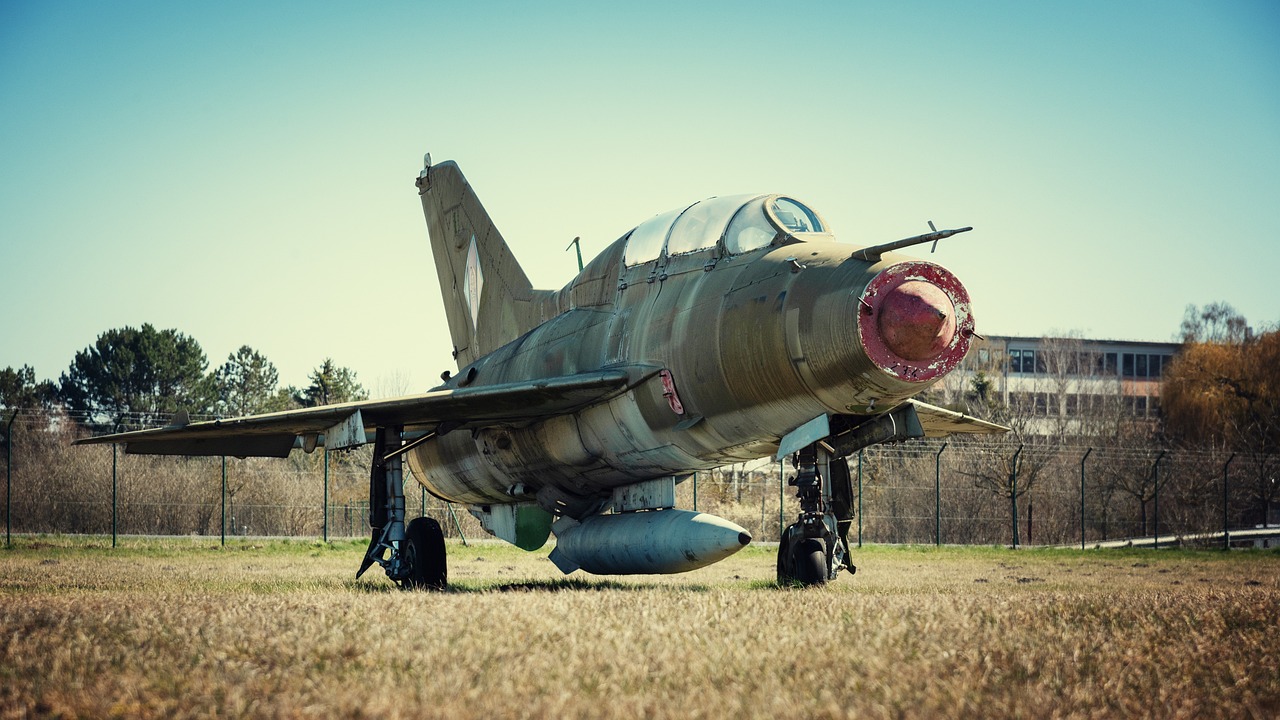
The Future of AI in Military Strategy
The future of AI in military strategy is not just a fleeting trend; it's a profound transformation that is poised to redefine how wars are fought and won. As we look ahead, the integration of artificial intelligence into military operations promises to enhance operational efficiency, effectiveness, and adaptability in ways we are just beginning to understand. Imagine a battlefield where decisions are not only made faster but also with a level of precision that was previously unimaginable. This is the future we are heading towards, and the implications are enormous.
One of the most exciting prospects is the development of smart weapons systems. These systems will leverage AI algorithms to improve targeting accuracy and reduce collateral damage. By analyzing real-time data, these weapons can make split-second decisions, adapting to changing conditions on the ground. It’s like having a chess master who can foresee multiple moves ahead, ensuring that every action taken is strategic and calculated.
Moreover, AI is expected to enhance logistics and supply chain management within military operations. The ability to predict equipment needs, optimize supply routes, and manage inventory levels will lead to a more efficient military force. Picture a scenario where drones autonomously deliver supplies to troops in remote locations, ensuring they have everything they need without delay. This kind of efficiency could mean the difference between success and failure in critical missions.
In addition to logistics, the role of AI in training and simulation is also set to expand. Virtual reality (VR) combined with AI can create immersive training environments that adapt to the performance of individual soldiers. This personalized approach ensures that each member of the armed forces is trained to handle a variety of scenarios, increasing their readiness for real-world challenges.
However, the future is not without its challenges. As AI continues to evolve, so too will the ethical considerations surrounding its use in military applications. Questions about accountability in autonomous systems and the potential for algorithmic bias will need to be addressed. It’s crucial that nations establish clear guidelines and regulations to govern the use of AI in warfare to prevent misuse and unintended consequences.
Furthermore, as military operations become increasingly reliant on AI, the need for robust cybersecurity measures will become even more critical. Protecting sensitive data from cyber threats will be paramount, as adversaries will likely seek to exploit vulnerabilities in AI systems. The military must invest in advanced cybersecurity technologies to safeguard its operations and maintain a strategic advantage.
In conclusion, the future of AI in military strategy is filled with potential. From enhancing decision-making and operational efficiency to revolutionizing training and logistics, the impact of AI will be profound. However, with great power comes great responsibility, and it is essential to navigate the ethical and security challenges that accompany these advancements. As we embrace this new era of warfare, one thing is clear: the battlefield of tomorrow will look very different from today, and AI will be at the forefront of this transformation.
- How will AI change military training? AI will enable personalized training programs using VR and adaptive simulations, ensuring soldiers are prepared for various scenarios.
- What are the ethical concerns surrounding AI in warfare? Key concerns include accountability for autonomous decisions, potential biases in AI algorithms, and the risk of unintended consequences.
- How does AI improve logistics in military operations? AI can predict equipment needs, optimize supply routes, and manage inventory efficiently, ensuring timely support for troops.
- What cybersecurity measures are needed for AI in the military? Robust cybersecurity protocols must be developed to protect AI systems from cyber threats and ensure the integrity of military operations.
Frequently Asked Questions
- How is AI changing military strategy?
AI is revolutionizing military strategy by providing enhanced decision-making capabilities, improving situational awareness, and enabling the use of autonomous systems. This means military leaders can make quicker, more informed decisions, ultimately leading to more effective operations on the battlefield.
- What role does predictive analytics play in defense?
Predictive analytics powered by AI helps military strategists forecast potential threats and outcomes. By analyzing data trends, it allows them to proactively adapt their plans, ensuring they are better prepared for various scenarios that may arise during operations.
- What are the ethical concerns surrounding AI in warfare?
The use of AI in warfare raises significant ethical questions, particularly regarding accountability for decisions made by autonomous systems, the moral implications of lethal operations, and the potential for unintended consequences that could harm civilians or escalate conflicts.
- How does AI improve real-time situational awareness?
AI enhances real-time situational awareness by integrating data from multiple sources such as satellites, drones, and reconnaissance units. This provides commanders with a comprehensive view of the battlefield, enabling them to make informed tactical decisions based on the most current information available.
- What challenges does AI face in military implementation?
While AI offers many benefits, its implementation in military operations faces challenges including potential biases in algorithms, the need for robust cybersecurity measures to protect sensitive data, and the ethical implications of relying on machines for critical decision-making processes.
- What is the future of AI in military operations?
The future of AI in military operations looks promising, with ongoing advancements expected to further enhance operational efficiency and adaptability. As technology evolves, we can anticipate even more sophisticated applications of AI that will shape the landscape of modern warfare.



















